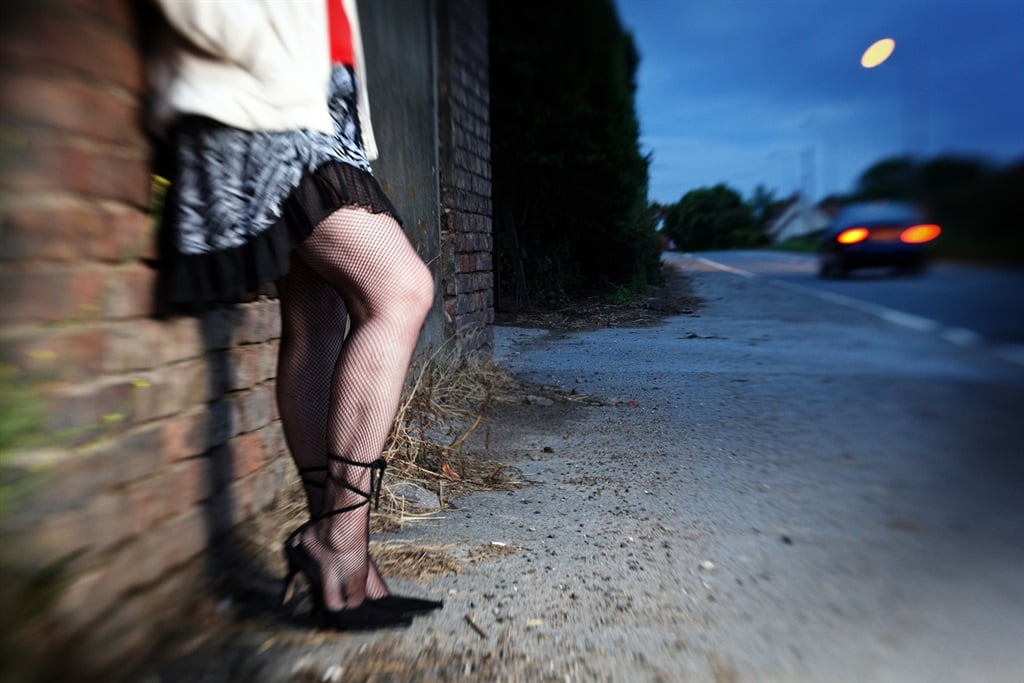
No compassionate human rights-based society – let alone one that prides itself on being based on human dignity, equality and freedom – can legalise and institutionalise an inherently exploitative system that preys on the vulnerable and marginalised, writes Liesl Pretorius.
Cabinet has recently approved the publication of the Criminal Law (Sexual Offences and Related Matters) Amendment Bill, 2022. Currently, adult prostitution*, i.e. selling or buying sexual services and all prostitution-related activities, is criminalised in its entirety. The Bill envisions fully decriminalising prostitution and related activities in South Africa.
The legal status of prostitution has far-reaching implications for both prostituted persons and South African society in general. It stands at the intersection of human dignity and sexual exploitation. An informed decision is needed on what the legal status of prostitution should be.
At the 2022 Coalition to End Sexual Exploitation Africa Summit, the Centre Against Sexual Exploitation South Africa (CASE-SA) addressed delegates on the human rights and public policy rationale underlying the legal regime regulating prostitution in South Africa. According to CASE-SA, a change in the legal regime is only justified if criminalising prostitution is unconstitutional or if sound policy considerations militate very strongly in favour of legal reforms.
Two conditions should be met
From a human rights perspective, the Constitutional Court has already confirmed that the full criminalisation of prostitution is constitutional. In its seminal judgment in State v Jordan (2002) (see para [74] of the judgment), the Court emphasises that it is prostitution itself – and not prostitution law – that violates prostituted persons' fundamental right to human dignity.
The judgment emphasises the value placed by the South African Constitution on human dignity, including the fundamental dignity of the human body. The Constitution requires the human body to be respected and not commodified, yet this is exactly what prostitution does: it degrades human bodies by turning it into merchandise. The Court also found that criminalising prostitution does not unreasonably or unjustifiably infringe on prostituted persons' rights to equality, freedom and security of their person, privacy, or their freedom of trade, occupation and profession.
Any discrimination or abuse prostituted persons suffer at the hands of law enforcement officials, health care personnel or members of the public, including buyers, is already unlawful. The non-enforcement of existing laws is a major concern.
From this perspective, decriminalising prostitution is a logical public policy option if two conditions are met. Firstly, if the harms and socio-economic marginalisation of prostitution flow either solely or mainly from the fact that prostitution is fully criminalised – as opposed to from the nature and practice of prostitution itself and its underlying causes. Secondly, if decriminalisation will reduce or negate the harms of prostitution while improving prostituted persons’ quality of life.
In 2017, the South African Law Reform Commission (the Commission) published an extensive Report on Adult Prostitution, reflecting the culmination of a thorough process of investigation, public participation, and consideration of local and international academic research and law. The report's recommendations are authoritative, applying the Commission’s observations to the unique and complex South African context.
Prostituted persons' lived reality and research evidence show that full decriminalisation does not and cannot reduce the intrinsic harms or eradicate the inherent risks of prostitution – neither can it improve the socio-economic circumstances of prostituted persons. In fact, full decriminalisation only overlooks and exacerbates the real problem.
The comprehensive report finds that the harms of prostitution – which include gender-based violence, racism, sexism, and class prejudice – are inherent to prostitution itself (see paragraphs 204, 218 and 225). It is no wonder that the Commission concludes that prostitution is not work in any conventional sense of the word but a survival strategy (see para 63).
From both a constitutional and public policy perspective, law reform is neither necessary nor justifiable. No human rights-based society can condone and tolerate rights violations that originate from and are sustained by the socio-economic vulnerability of a group of persons who are relatively powerless and easily exploitable.
Saying 'no' to decriminalisation
For this reason, CASE-SA is adamant that defending prostituted persons' dignity starts with saying ‘no' to full decriminalisation. The only way to protect prostituted persons and society from these horrific harms and continued human rights violations is to eradicate – not legalise – the entire system of prostitution.
It is significant that the Commission does not recommend full decriminalisation but prefers retaining full criminalisation coupled with diversion. This option criminalises all aspects of prostitution and prostitution-related activities but is coupled with diversionary programmes – an important imperative to help prostituted persons successfully exit the system.
This approach will necessitate pro-active socio-economic interventions, such as establishing viable opportunities to exit prostitution or, even better, to not enter it in the first place. Effective law enforcement, especially targeting demand and third parties who facilitate or profiteer from the sexual exploitation of others, is equally important.
Full criminalisation recognises that since prostitution is a human rights violation and inherently violent and exploitative, it is undesirable and should be strongly discouraged. It also recognises that, as is the case with drugs, society has a duty to protect its people from harmful practices.
This approach is further sympathetic to the fact that prostituted persons need help to exit prostitution, as the majority are victims of their circumstances. For this reason, successful diversion includes the opportunity to have criminal records relating to prostitution and prostitution-related activities expunged.
The Commission sees partial decriminalisation (also known as the Equality Model) as an alternative option to full criminalisation. This option aims at addressing the demand side of prostitution (the "sex buyers") and is garnering significant support in an increasing number of jurisdictions. This option also recognises that prostitution needs to be eradicated since it is inherently harmful and most prostituted persons are victims of sexual exploitation.
Sexual exploitation
To be practically effective, this approach requires law enforcement to address demand proactively. Otherwise, prostitution and its related activities and harms will continue unabated or even increase. The reality is that buyers are already not deterred by the criminalisation of prostitution. Also, the challenges faced by the South African Police Service relating to management, resources, and staff are well known. Unless specialised prostitution units can be established and maintained to ensure its effective implementation, it is highly questionable whether this option is workable.
Ultimately, the challenge to eradicate prostitution is developmental in nature. The system of prostitution originates in and is sustained by desperate socio-economic circumstances where the bodies of vulnerable and marginalised human beings are commodified and devalued.
The truth is prostitution is sexual exploitation. It's not work, and more often than not, it's not a real choice. No compassionate human rights-based society – let alone one that prides itself on being based on human dignity, equality and freedom – can legalise and institutionalise an inherently exploitative system that preys on the vulnerable and marginalised.
Fully decriminalising prostitution holds no benefit for prostituted persons or society. It also flies in the face of the recommendations of South African Law Reform Commission and the ever-growing body of research evidence that shows that full decriminalisation will only exacerbate the already detrimental impact and harms of the system of prostitution. When following the facts, there can be no other conclusion: the full decriminalisation of prostitution is simply not an option. This makes the South African government's blatant disregard for the Commission's findings, the growing body of research evidence, and the lived experiences of prostituted persons all the more perplexing and alarming. To fulfil the promise of our Constitution, South Africa must reject the call to decriminalise prostitution.
- Liesl Pretorius is a programme coordinator at the Centre Against Sexual Exploitation, South Africa (CASE-SA), an initiative dedicated to defending human dignity and eradicating all forms of sexual exploitation in South Africa.
* The terms “prostitution” and “prostituted person” are used, out of recognition that prostitution is not work – but sexual exploitation. We recognise this based on the conclusions of a growing body of research evidence, and also out of respect for those survivors of the system of prostitution that we know, that do not want to be called sex workers (as they believe this is a misnomer disguising the violent and traumatic reality of what they’ve been through). We believe words have power, and we want to the best of our knowledge, use our words responsibly.
*Want to respond to the columnist? Send your letter or article to opinions@news24.com with your name and town or province. You are welcome to also send a profile picture. We encourage a diversity of voices and views in our readers' submissions and reserve the right not to publish any and all submissions received.
Disclaimer: News24 encourages freedom of speech and the expression of diverse views. The views of columnists published on News24 are therefore their own and do not necessarily represent the views of News24.




 Publications
Publications
 Partners
Partners























